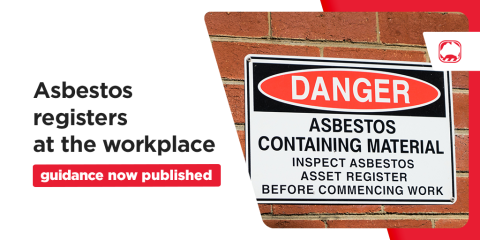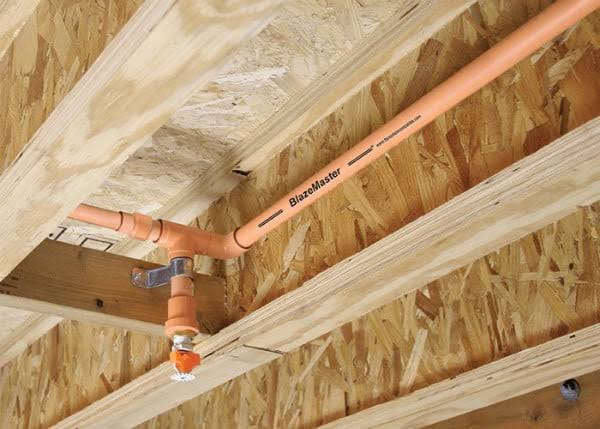Introduction
The construction industry is a cornerstone of modern infrastructure and development, with a global market value that continues to rise. As urbanization and construction projects expand, the demand for specialized equipment, including access equipment, has surged. Starting a business that rents access equipment to construction companies can be a lucrative venture. This comprehensive guide delves into the potential of entering this market, discussing key aspects such as market analysis, business model, competition, legal considerations, marketing strategies, financial projections, and operational considerations.
Market Analysis
Industry Overview
Before embarking on any business venture, it’s crucial to understand the industry in which you plan to operate. The construction industry, valued at trillions of dollars worldwide, relies heavily on various types of access equipment. These machines facilitate tasks such as reaching elevated work areas, transporting materials, and ensuring worker safety.
Market Trends
Several trends make this an opportune time to enter the access equipment rental business:
- Rising Construction Activities: The construction industry is experiencing growth globally, driven by urbanization, infrastructure development, and housing demands.
- Shift Towards Rental: Many construction companies are increasingly favoring renting over purchasing access equipment due to cost savings, reduced maintenance responsibilities, and flexibility.
- Safety Regulations: Stricter safety regulations are driving the demand for high-quality access equipment, making rental businesses essential for compliance.
- Sustainability: Environmentally conscious construction practices are pushing the adoption of energy-efficient and eco-friendly access equipment, creating opportunities for innovative rental businesses.
- Technological Advancements: Smart technologies are being integrated into access equipment, enhancing safety and efficiency. Staying updated with these advancements can give your business a competitive edge.
- Regional Growth: Different regions may have varying demands for specific types of access equipment. Conduct a localized market analysis to identify specific opportunities in your area.
Target Market
Identifying your target market is essential for tailoring your business strategy. In the construction industry, potential customers include:
- Construction Companies: Large, medium, and small construction firms are the primary clients. They frequently require access equipment for both short-term and long-term projects.
- Contractors: Independent contractors often rent equipment for specific jobs rather than investing in their own fleet.
- Industrial Facilities: Facilities such as warehouses, factories, and manufacturing plants require access equipment for maintenance and repairs.
- Event Management Companies: Some access equipment, like scissor lifts, are also used for event setup, making event management companies potential clients.
Business Model
Equipment Selection
Choosing the right mix of access equipment is crucial. Consider factors like local demand, competition, and the specific needs of your target market. Common access equipment includes:
- Scissor Lifts: Ideal for indoor and outdoor work, scissor lifts provide stable platforms for workers and materials.
- Boom Lifts: These offer greater reach, making them suitable for tasks like tree trimming or building maintenance.
- Scaffolding: Traditional scaffolding remains a staple in the construction industry due to its versatility.
- Aerial Work Platforms (AWPs): These are versatile machines that can be used for various tasks at different heights.
- Forklifts: Necessary for transporting heavy materials and equipment on construction sites.
- Cranes: Larger projects may require crane rentals for heavy lifting and material handling.
Pricing Strategy
Pricing can significantly impact your business’s success. Research local market rates and consider factors such as equipment age, maintenance costs, and demand fluctuations when setting prices. Offering flexible rental options, such as daily, weekly, and monthly rates, can attract a broader range of customers.
Equipment Maintenance and Quality
Maintaining your equipment is critical to ensure safety and longevity. Regular inspections, servicing, and adherence to manufacturer guidelines are essential. Providing high-quality, well-maintained equipment will build trust with your customers and encourage repeat business.
Location and Facilities
Selecting an optimal location for your rental business is crucial. Proximity to construction hubs and easy access for customers transporting equipment can be a significant advantage. Adequate facilities for storing and maintaining equipment are equally important.
Legal Considerations
To operate a rental business for access equipment, you must navigate various legal aspects:
- Business Registration: Register your business and obtain any necessary licenses or permits. Consult with legal professionals to ensure compliance with local regulations.
- Insurance: Acquire comprehensive insurance coverage to protect against accidents, damage, and liability claims.
- Contracts and Liability Waivers: Draft clear rental agreements outlining terms, responsibilities, and liability. Consult a legal expert to ensure these documents are legally sound.
- Safety Regulations: Stay informed about industry safety standards and regulations to maintain equipment and operations in compliance.
Competition Analysis
Understanding your competition is vital for devising a successful business strategy. Research existing rental businesses in your area, including their equipment offerings, pricing models, and customer service reputation. Identifying gaps in the market or areas where you can provide better service can give your business a competitive advantage.
Marketing Strategies
Effective marketing is key to attracting customers and establishing a strong presence in the industry:
- Online Presence: Create a professional website showcasing your equipment, rates, and contact information. Utilise search engine optimization (SEO) to ensure potential customers can find your business online.
- Social Media: Maintain active social media profiles to engage with potential customers, share industry insights, and promote your equipment offerings.
- Networking: Establish relationships with construction companies, contractors, and industry associations. Attend trade shows and networking events to connect with potential clients.
- Customer Reviews: Encourage satisfied customers to leave positive reviews online. Word-of-mouth recommendations are invaluable in this industry.
- Advertising: Consider targeted online advertising and local marketing efforts, such as flyers or direct mail, to reach your audience.
- Customer Service: Exceptional customer service can set you apart from competitors. Respond promptly to inquiries and resolve issues professionally.
- Referral Programs: Implement referral programs that incentivise customers to refer others to your rental business.
Financial Projections
Creating financial projections is essential for assessing the feasibility and profitability of your business. Consider factors such as initial investment, operating costs, revenue projections, and break-even points. Seek guidance from financial experts or use financial modeling software to create accurate forecasts.
Initial Investment
Calculate the capital needed to start your rental business. This includes expenses for acquiring equipment, leasing or purchasing facilities, insurance, legal fees, and initial marketing costs.
Operating Costs
Estimate ongoing expenses, which may include:
- Equipment maintenance and repair costs.
- Labor costs for employees responsible for equipment maintenance and customer service.
- Rent or mortgage payments for your facilities.
- Insurance premiums.
- Marketing and advertising expenses.
- Utilities and other overhead costs.
Revenue Projections
Forecast your potential revenue based on equipment utilization rates, pricing, and market demand. Consider different scenarios, such as best-case and worst-case, to prepare for various outcomes.
Break-Even Analysis
Determine when your business is expected to reach its break-even point, where total revenue equals total expenses. This analysis helps assess the time frame in which you can expect profitability.
Operational Considerations
Equipment Maintenance and Inspection
Establish a rigorous maintenance and inspection schedule to ensure the safety and functionality of your equipment. Consider hiring skilled technicians or partnering with maintenance service providers.
Staffing
Determine your staffing needs, including roles such as equipment operators, maintenance technicians, administrative staff, and sales and marketing personnel. Hire experienced individuals who understand the construction and rental industry.
Inventory Management
Implement an efficient system for tracking equipment rentals, maintenance schedules, and availability. Use software solutions to streamline inventory management and reservations.
Customer Service
Offer exceptional customer service to build strong relationships with clients. Provide detailed instructions on equipment usage and safety measures. Maintain open lines of communication for inquiries and support.
Expansion and Growth
As your business grows, consider expanding your equipment inventory and geographic reach. Explore opportunities for diversifying your services or offering specialized equipment to meet evolving industry demands.
Conclusion
Starting a rental business for construction access equipment presents a promising opportunity in a growing industry. With the right market analysis, business model, legal considerations, marketing strategies, financial projections, and operational planning, you can establish a successful venture that provides valuable services to construction companies and related industries. As the construction sector continues to evolve, staying adaptable and responsive to market trends will be crucial to long-term success in this business.
Remember that success in the access equipment rental business requires dedication, attention to detail, and a commitment to safety. By delivering top-quality equipment and exceptional service, you can build a strong reputation and secure your position in this thriving industry. Whether you’re a seasoned entrepreneur or a newcomer to the business world, this comprehensive guide can serve as a valuable resource for launching and growing your rental business for construction access equipment.




